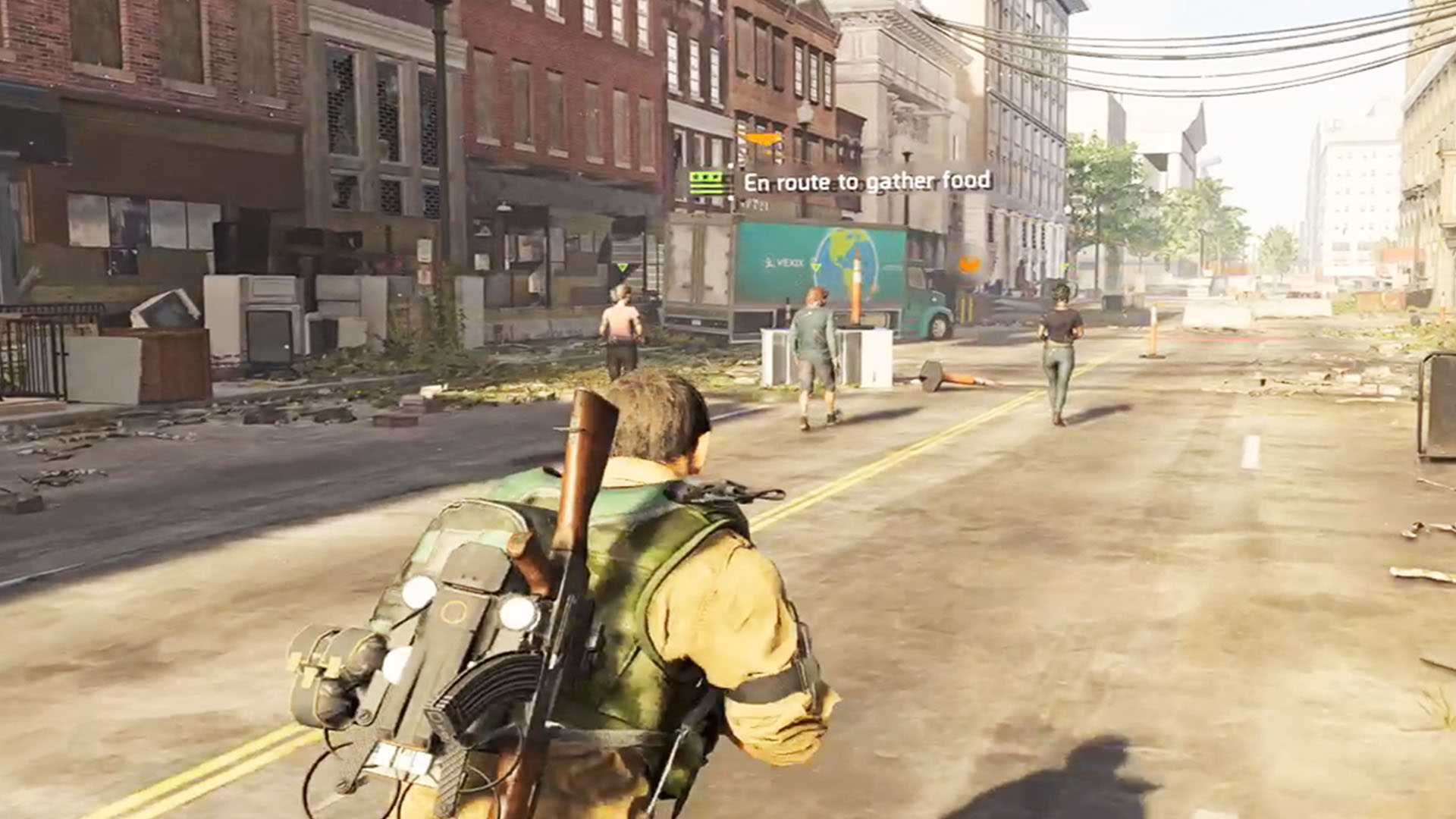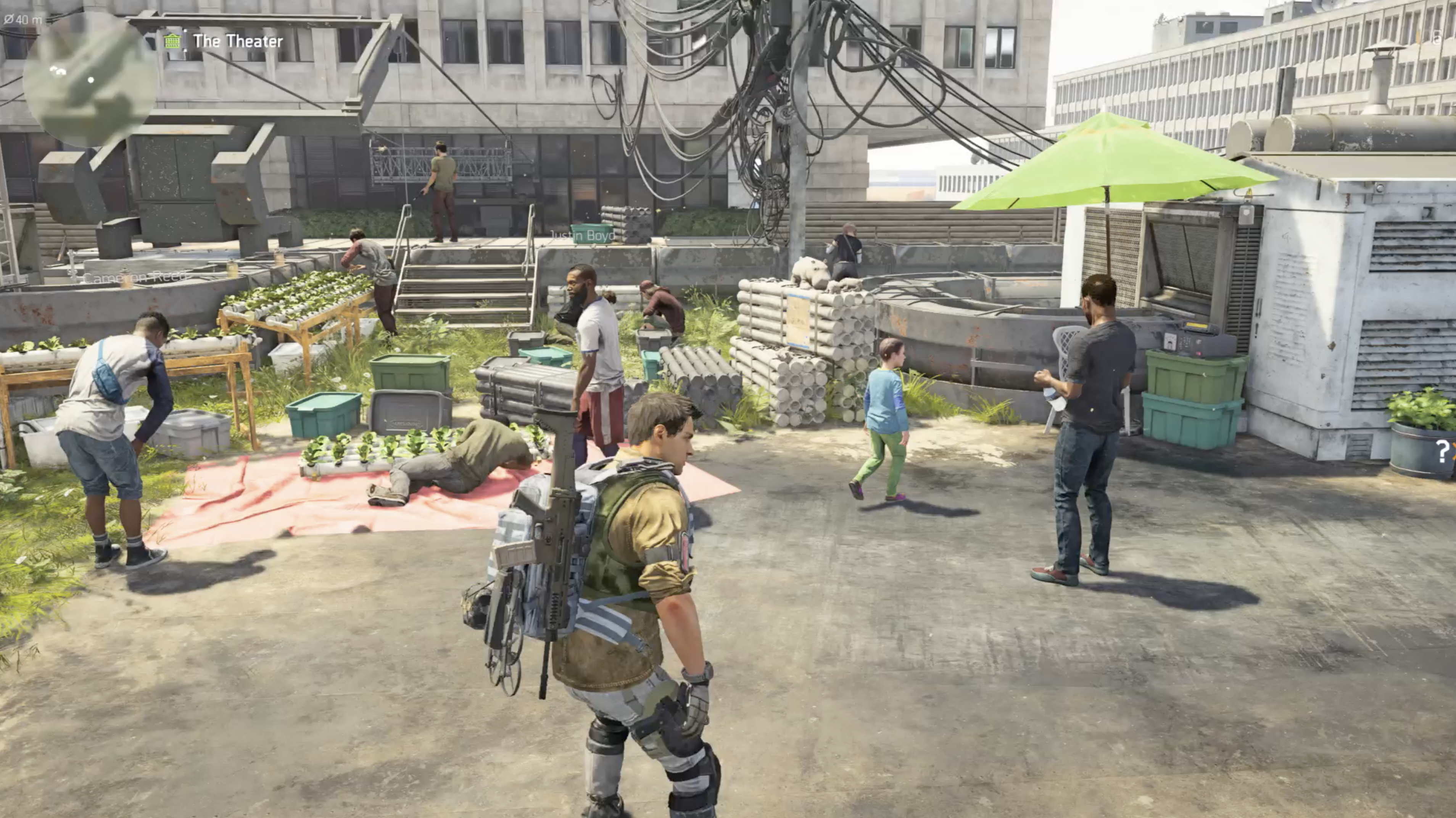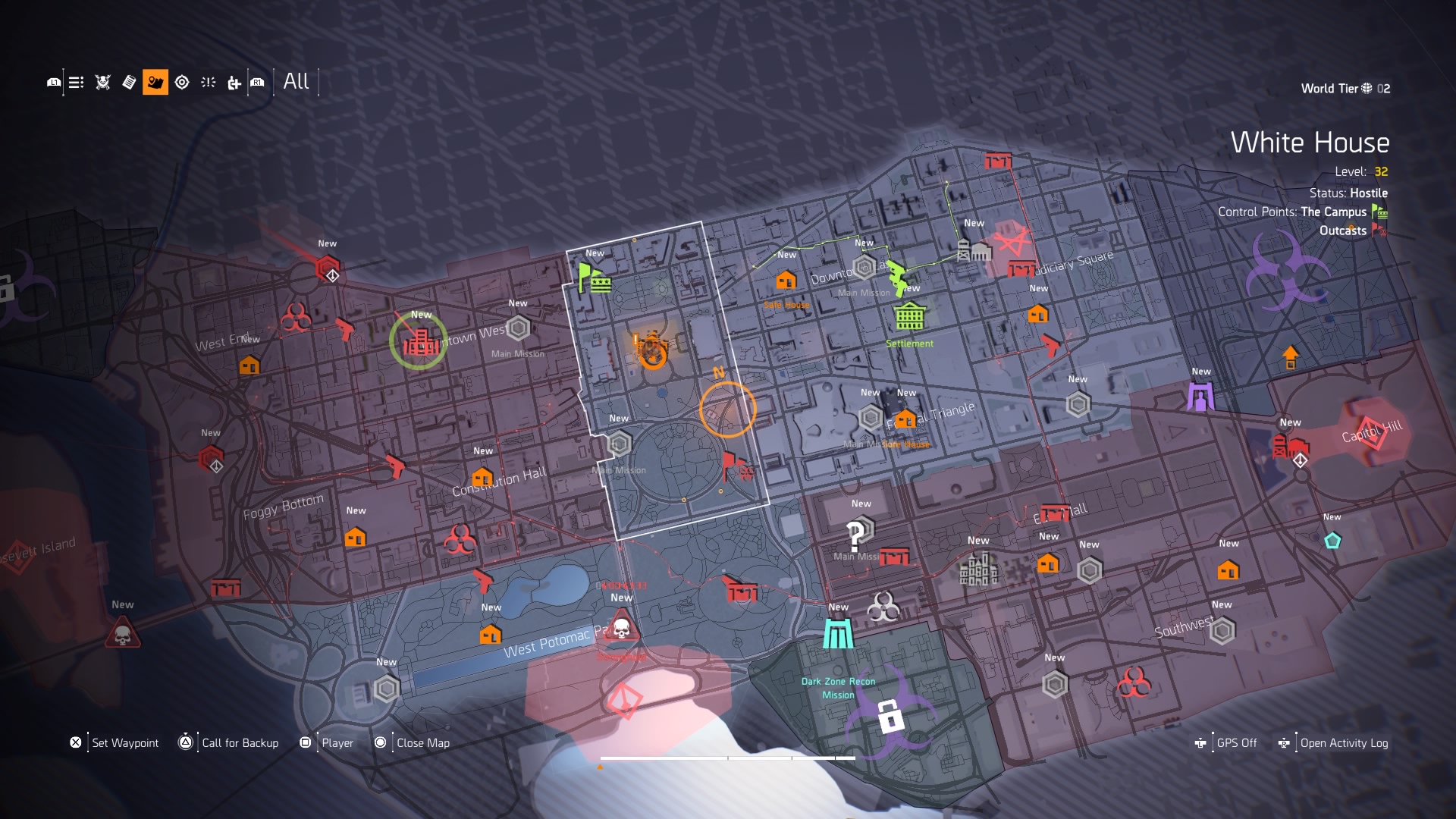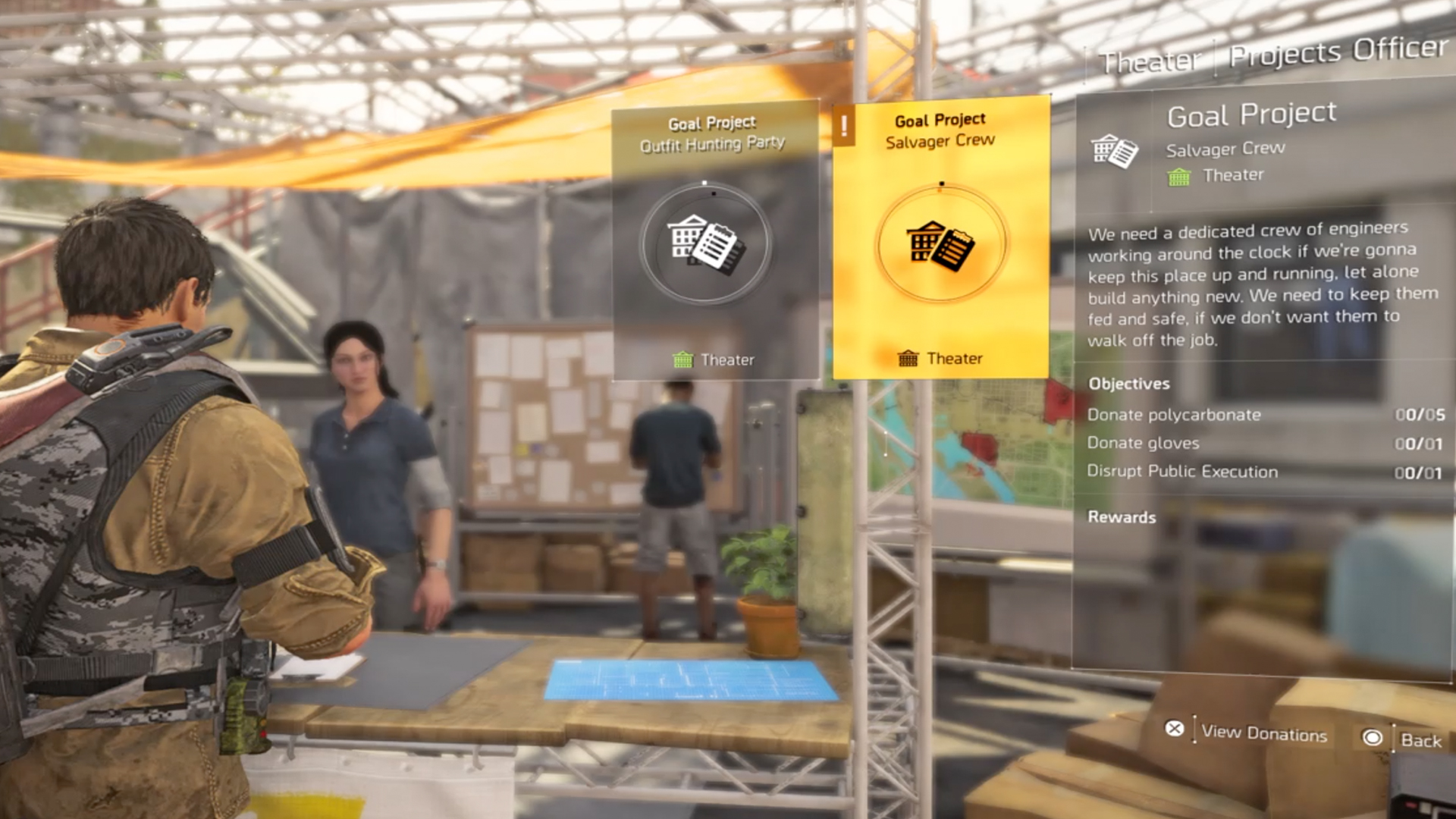The best thing about The Division 2’s world is realising you’re not the only one working to save it
The Division 2 makes you feel part of a world, rather than the only thing in it
The broad strokes of playing The Division 2 are all about its magic number guns and stat buffing knee pads. The enjoyable, shouty scrambling shootouts basically exist as massively interactive loot-spewing fruit machines, dropping ever improving guns to use in even more enjoyable, shouty scrambling shootouts. In that respect: So looty, so shooty. But in a genre that typically shores together inert battle arenas with narrative planks and calls it a day, The Division 2 does one thing beautifully: It gives its world an ongoing life full of purpose.
Proof of life
Plenty of games make their world appear alive, largely through illusion and trickery – things like the Far Cry series’ randomly spawned faction battles or wandering prisoner rescues spring to mind here. But often these are little more than sideshows staged to entertain you like tourists in a theme park – Red Dead Redemption 2 I am looking directly at you here. These are systems that create the illusion of life, with digital actors that scurry ahead of you to set up and act out a scene, and then break it all down again after you pass, leaving little trace on the world once they’re gone. The Division 2 introduces a more meaningful twist on this by giving its actors a purpose and things to do – they’re not just performing for your sake, they’re roleplaying.

There are people in The Division 2 that aren’t you, other players or enemies, that are doing... stuff to change the world around you. As you fight to restore order and drive back the bad guys in Washing D.C., allies appear on the newly safe-to-walk streets. You‘ll clear a control point and free up some territory in an area, only to return later and see people patrolling or carrying food across town. You can see them on the map going about their business, or hear the nearby rattle of gunfire as they battle enemies a street over from you to protect a newly liberated base. Seeing hopeful faces moving into buildings, working in response to your heroic attempts to clear spaces for the good of the district – even if your motivation for doing so is just to claim a slightly better pair of gloves, but shhh, they needn't know about any of that. Ultimately, it's the responsiveness of the characters, the citizens that exist in The Division 2's world, that help ground your actions within the scenario and give your actions far more meaning than the expected repeat of grateful NPC dialogue lines to accompany an XP pop.

Giving the supporting cast a purpose that has a physical impact on the world buffs their presence immensely. It does an incredible job of making you feel like you did something more meaningful than just killing Boss X, and that the world is getting on with its stuff without you – you’re not solely responsible for advancing its betterment mission by mission. Somewhere, some no name in a distant grubby apartment is going to eat because of those rando’s you passed carrying supplies. And the only reason that those randos are able to move the supplies – the reason that there's a growing army of combative civilians out in the streets getting the job done – is because of you working diligently to ensure that it is safe enough for them to get out there and do stuff. Go you!
Pre-endgame, it’s easy just to soak up it all up as an ambient character because you have places to go, people to shoot. Once you enter the endgame though, everything steps up a notch – battles will break out for control points and settlements whether you’re there or not. While you’re off grinding strongholds for World Tiers your bases can fall or be regained. The map is full of markers showing enemy and ally forces moving around to fight. You can see their routes as a friendly attack force wanders towards a taken base, or enemy supplies get shipped from one end of the map to the other.

The map screen becomes an undulating, ever-changing board game of war where you’re just one of the pieces on the board. You can jump in if you want – ambushing convoys, or joining a patrol to pitch in – there’s even a trophy for helping people gather resources. But whatever you do, there’s a constant push and pull between green and red across the map, regardless of whether you get involved or not. And the fact that you don’t have to get involved makes it all the more meaningful. A world that can tick over without you, for better and for worse, ultimate feels far more realistic than one sat idle waiting for the chosen one to arrive.
Weekly digests, tales from the communities you love, and more

I'm GamesRadar's Managing Editor for guides, which means I run GamesRadar's guides and tips content. I also write reviews, previews and features, largely about horror, action adventure, FPS and open world games. I previously worked on Kotaku, and the Official PlayStation Magazine and website.



